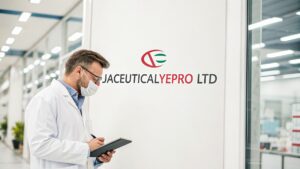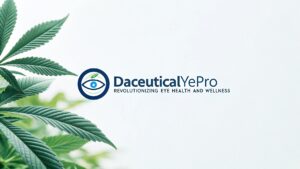Most Common Products Made in Dental Labs
Dental labs manufacture a wide range of customized products for restoring and enhancing patients’ oral health and aesthetics. These labs employ skilled technicians who use materials like porcelain, ceramic, zirconia, composite resin, and titanium to create prosthetics and appliances tailored to individual patient needs. Here are common products made in dental laboratories and their functions:
Dental Crowns
These dental products are custom-made caps molded to mimic the natural shape of a person’s tooth. These caps fit over decayed or broken teeth, helping restore their shape, size, and appearance. Custom crowns fit securely over the entire tooth, allowing patients to use their teeth normally to speak and chew.
Dental labs fabricate dental crowns using a variety of materials, including zirconia, ceramic, porcelain fused to metal, and metals like gold, nickel, and chromium. To make customized dental crowns, a dentist takes an impression of the patient’s teeth with a digital scanner or dental putty and sends it to the lab. Lab technicians use these impressions to create dental crowns that fit patients’ teeth perfectly.
Dentures
Dentures are removable or fixed prosthetics that replace missing teeth in the lower or upper jaw, making it easier to chew and speak. These dental products come in two forms, which include complete and partial dentures. Complete dentures are meant to replace all the teeth on the lower or upper jaw. Partial dentures cover gaps of some missing teeth.
Dental lab technicians use materials like acrylic resin and flexible nylon to create lightweight, durable, and comfortable dentures. Modern labs often utilize 3D printing to improve precision and reduce production time. Lab technicians rely on dental impressions, indicating the areas missing teeth to create custom dentures.
Dental Implants
Dental implants are surgical tooth replacement options that support crowns, dentures, and bridges. Dental laboratories manufacture abutments and implant overdentures. Abutments are tiny posts that dentists place slightly below the gums during surgery to support artificial teeth. Labs use computer-aided design and computer-aided manufacturing (CAD/CAM) technology to design custom abutments that match a patient’s dental anatomy, providing a precise fit.
Overdentures are a teeth restoration solution designed to snap onto dental implants placed in the jawbone. Overdentures are ideal for individuals who have lost all or most of their teeth as they prevent bone loss in the jaw. If you have a patient who has lost all their teeth, implant-supported overdentures are ideal, while tooth-supported overdentures are ideal for individuals with some natural teeth remaining. Labs make custom overdentures that match the rest of the mouth, creating the appearance of all-natural teeth.
Bridges
Dental bridges are prosthetics fixed onto an implant to replace a tooth or a row of missing teeth. Dental laboratories customize bridges to match the shade and structure of an individual’s natural teeth. Dental technicians structure traditional bridges with real anchor teeth on the ends and an artificial tooth in the middle. Lab technicians also make cantilever bridges, which are beneficial when the patient only has one healthy anchor tooth. Maryland bridges use metal instead of crowns to secure the artificial teeth. The best bridges depend on how many missing teeth the patient has and the condition of the teeth next to the gap.
Get Custom Solutions From Dental Labs
Dental labs are professional establishments that hire trained technicians to create fitting dental solutions based on dentists’ prescriptions. The technicians in these labs know how to study dental impressions and have experience working with dental-friendly materials. Reputable labs employ technologies like CAD/CAM to create more precise products that match impressions provided by dentists. Start your search for a vendor and get all your custom dental products from a credible lab today.






